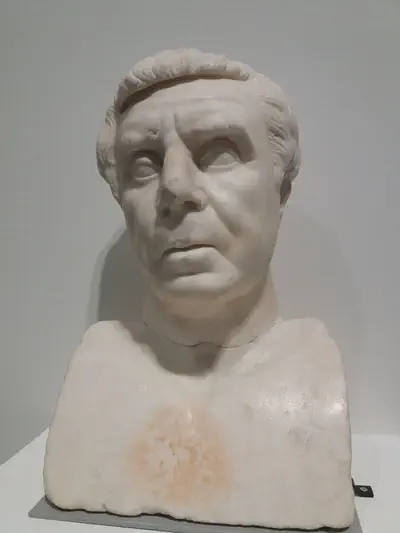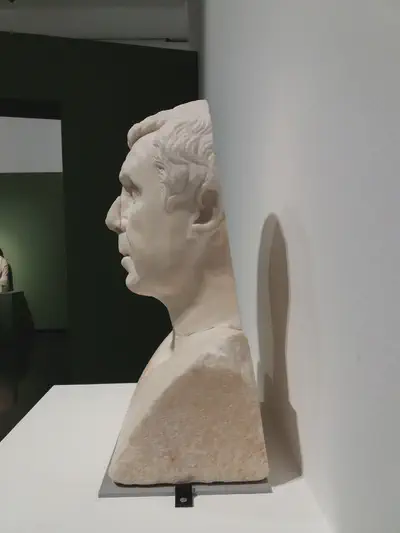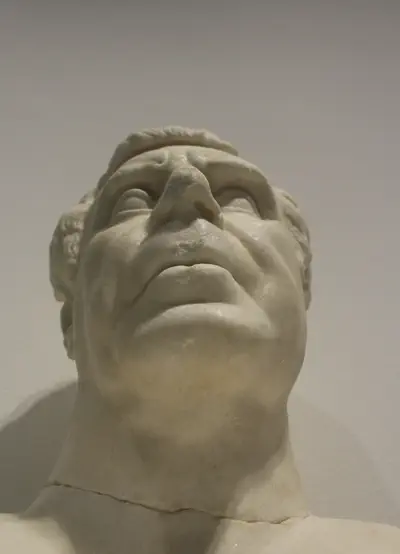The Machiavellian Face of Roman Politics?
Amid countless idealized sculptures of Roman leadership figures, this bust of a senior male stands out for its raw, unflinching depiction of age and suffering. Remarkably, there is a pronounced asymmetry between the sides of the face which suggests one sided paralysis, perhaps caused by a stroke. It is truly unique.
The artefact is said1 to depict Lucius Munatius Plancus, the founder of Lugdunum (modern day Lyon), and the contrast between the two sides can be better seen at Lugdunum museum’s website. More specifically, here and here.
For all his achievements, Plancus is surprisingly little-known to the mainstream, yet notorious in academic circles2 for his self-serving and duplicitous ways. It’s a reputation that has dogged him for two millennia.
He deftly played numerous powerful men against each other, most notably Octavian and Mark Antony, for the best part of a decade, in part to survive incredibly dangerous times. So treacherous was he that he even put his own brother on Antony’s proscription list3 to ensure him of his loyalty.
Plancus was quite the carouser too, famously partying with Anthony and Cleopatra at Alexandria. There, he flattered her to the max, stripped naked, painted himself blue, attached a fishtail to his arse and cavorted around as Glaucus the Nereid4. True to form, he returned to Rome shortly afterwards and betrayed Antony’s will5 to Octavian. This escalated tensions that led to the Battle of Actium.
Say what you will about him, but he got a lot done. After serving as one of Caesar’s six prefects of Rome6, he founded two cities (one for Roman refugees fleeing the Helvetii), triumphed in battle, and restored the Temple of Saturn with the spoils7. He even gave Augustus his name8. Sure, he was a treacherous bastard, but was he really any worse than the other power-hungry, genocidal figures of his time? If anything, he understood the brutal game of Roman politics better than most and stayed alive due to remarkable skill.
Props to the fellow. By the time old age caught up with him, he’d earned that mausoleum.
Unconvincingly, as indicated on the museum webpage. ↩︎
Mitchell, H. (2019); The reputation of L. Munatius Plancus and the idea of “serving the times.” ↩︎
This is supported by numismatic evidence. ↩︎
CIL X 6087; funerary inscription of L. Munatius Plancus. ↩︎



